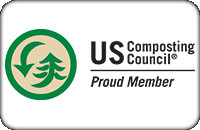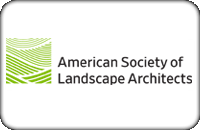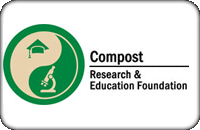Our key focus at Naturcycle is “Restoring Earth” and our compost is an important tool to achieve that goal. We offer a wide variety of compost types for various applications. We often field questions and review project specifications that require peat, but what is peat? Why is compost a better substitute?
Defined by the International Peatland Society,
“Peat is the surface organic layer of a soil that consists of partially decomposed organic matter, derived mostly from plant material, which has accumulated under conditions of waterlogging, oxygen deficiency, high acidity, and nutrient deficiency.”
For generations, peat has been used in horticulture as a growth medium due to its extraordinary water-holding capacity. Peat is also harvested as a source of fresh water and fuel. In recent years, though, due primarily to environmental concerns, this material has fallen out of favor.
Peat takes hundreds of years to regenerate in natural conditions and is not considered a renewable resource. Peatlands cover only 3% of the planet’s land area, but sequester 42% of the world’s soil carbon, according to the International Union for the Conservation of Nature. Harvesting peatlands is not sustainable and causes significant environmental damage. Compost production, however, is highly sustainable. In the United States, most commercially available peat is sourced from Canada. Compost is often produced locally from recycled materials and is readily available, so does not have equivalent fuel and transportation impacts when compared to peat.
In addition, peat is not an ideal growth substrate for plants either. Though structurally similar to a variety of compost types, peat lacks the beneficial nutrient profile that compost provides, requiring additional fertilization in a horticultural setting to keep plants healthy. A scientific study conducted to compare peat to compost found that in most cases, “the addition of compost to the growing media produced an increase in the pH, salt content and macronutrient concentrations, in comparison to peat, whereas the physical properties of the compost based-substrates had values very similar to those of an ideal substrate.”

For these reasons, compost provides an excellent alternative to peat for gardening and nursery applications. Naturcycle offers a variety of compost products throughout the northeastern United States. All are produced locally using recycled organic materials. We prioritize compost as the preferred organic amendment and offer it whenever possible as a sustainable, green alternative to peat. As the horticultural industry moves away from using peat as a plant growth substrate, Naturcycle can advise and recommend an appropriate compost or compost-based engineered soil for your project needs, including turf establishment, planters and nursery production, urban agriculture, and landscaping applications. Contact us today!






